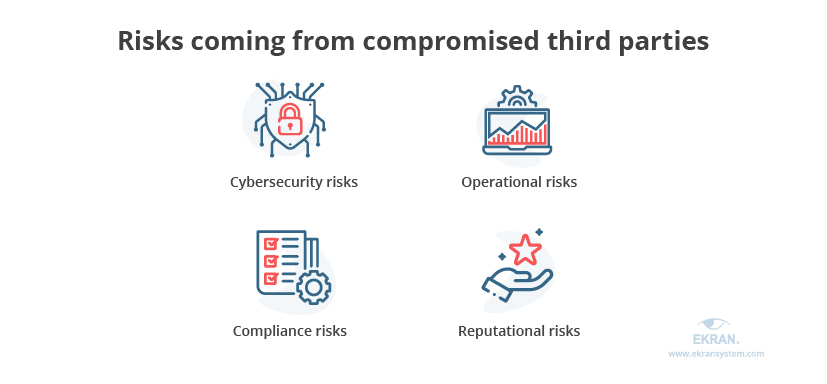What is one piece of advice that parents give to children? – DO NOT GET candy from strangers. But even though this advice has followed us through our childhoods, why do adults continue to get apps from unknown people? The same idea goes into this scenario, too, because downloading apps from unknown sources can seriously damage our online activity and lives.
One of the risks associated is downloading a software application from a third-party app store that infects your smartphone or tablet with malicious software. Such malware could enable someone to take control of your device, and it might give hackers access to your contacts, passwords, and financial accounts.
What are third-party applications?
Applications created by developers or app development companies that are not affiliated with the manufacturer of a mobile device or its operating system are known as third-party apps. Apple and Google have many of these applications created for their operating systems. Those manufacturers also develop applications for their own devices, which are first-party or “native” apps. But the majority of apps available are third-party apps. An example is an email application that comes pre-installed on a mobile device and is likely branded with the manufacturer’s name – this is considered a native app. On the other hand, if a friend of yours creates an app, this would be classified as a third-party app.
Apple’s AppStore and Google Play are the main sources for acquiring mobile applications for iPhones or Android devices. These platforms consist of applications developed by Apple or Google or created by third parties that make them suitable for iOS or Android. But are these apps secure? Generally, the official app stores are careful in selecting and filtering out malware. However, third-party app stores may only sometimes be as thorough when scrutinizing the applications, which may result in a greater risk of obtaining malicious software.

Security risks that can come from unofficial third-party apps
It can be tempting to purchase apps from third-party stores due to their discounted prices. However, this may leave mobile devices vulnerable to malicious software such as ransomware, malware and adware. This is because such viruses can be integrated into the applications available in these stores. Additionally, private data such as phone numbers, device info and email addresses can be taken from users by these stores.
These apps may also have access to permissions on the device that can further increase the potential for harm, such as the ability to make calls, send messages, and access the camera and microphone. Using third-party apps from unknown sources can also expose the device to security vulnerabilities, making it more susceptible to hacking and cyber-attacks. Therefore, it is recommended to only download apps from trusted sources, such as the official app stores, and to carefully review the permissions requested by an app before downloading it.
However, it’s essential to remember that only some third-party app stores pose the same level of risk. For example, not all countries have access to Google Play, so people in these regions use applications from other app stores which may be considered legitimate. These third-party stores have one thing in common: the operating system owner does not regulate them. This is an attractive quality for app developers as it allows them to target their desired audience in ways not possible with official stores and gain more exposure in a specific market.
How to minimize risks coming from these apps?
One way to minimize danger from third-party app stores is to avoid them. It’s a good idea to think twice before downloading an email attachment from a stranger to buy an app. But, even if you do, it’s also possible to download an app from one of the official app stores and have your device subject to malware. And it is always a good option to return to security products to run different security audits and scans for these apps to guarantee your protection. Here are a few examples:
Antivirus software can detect and remove malware, viruses, and other security threats from third-party apps and prevent future infections. Some good providers are Norton Antivirus, Bitdefender, and McAfee.
Mobile device management (MDM) software can enforce security policies and restrictions on mobile devices, including installing third-party apps, to help reduce the risk of malware infections. A few good software are Jamf Pro and Ester.
Firewalls can block incoming traffic from malicious third-party apps and limit their access to sensitive information on the device. Worth mentioning is that firewalls can be Avast or Sonicwall.



